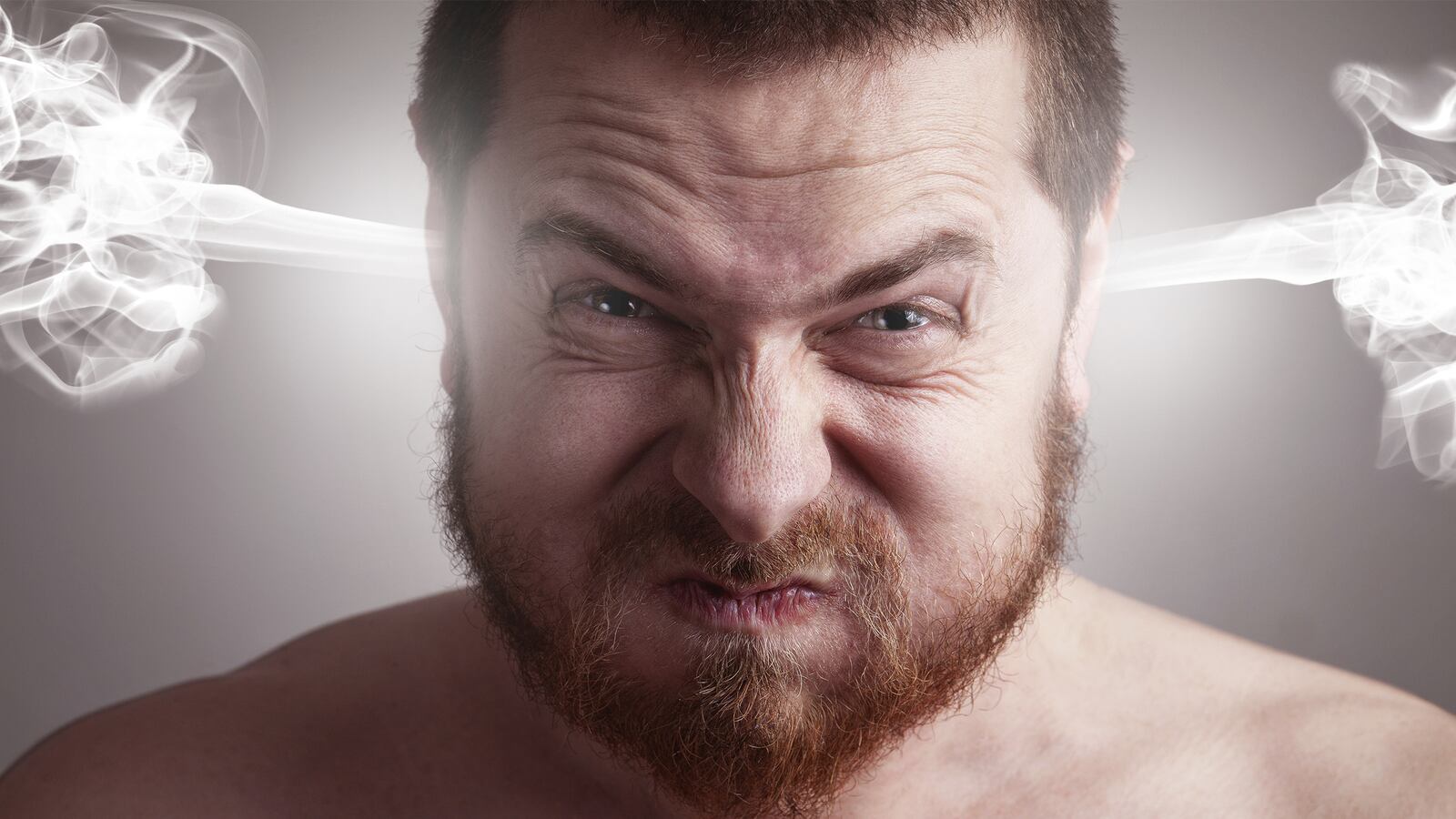Exploding Head Syndrome (EHS) is not something that happens to zombies in The Walking Dead—it’s a real phenomenon that may be experienced by a large number of young people.
In a new study published by the Journal of Sleep Research, Washington State University psychology professor Brian Sharpless found that 18 percent of the 211 undergraduate students in his sample had experienced EHS, defined as “the perception of loud noises during sleep-wake or wake-sleep transitions.”
In other words, EHS is the rough auditory equivalent of the hypnic jerk (or involuntary jerk), the relatively common phenomenon of feeling like you are falling or tripping just as you begin to fall asleep. As one sufferer of EHS tells The Daily Beast, “It’s similar to that sensation…but, uh, ‘louder?’”
EHS is “relatively harmless”—less than 3 percent of Sharpless’s sample experienced it as being a clinically significant cause of distress or impairment—but it can certainly be “frightening” to hear an inexplicable loud noise in the middle of the night.
Although EHS has been documented in scientific literature since 1890, academic writing on the subject is sparse. One recent review of the literature turned up only 76 cases, most of them women, with a median age of 54. Sharpless’s study suggests that the phenomenon may be more prevalent among young people than previously thought.
The root causes of EHS as well as its overall prevalence are still unclear. There is some indication that it may be associated with anxiety and that it results from an interruption in the function of the brainstem as one falls asleep. But if it as frequent as Sharpless’s sample suggests, he recommends further research into the phenomenon be conducted in order to help those who do find it to be legitimately distressing.
Exploding Head Syndrome might not be as painful as it sounds but it would be helpful to know more about the surprisingly common—but completely illusory—things that go bump in the night.
To better understand this underexplored phenomenon, I spoke with four sufferers of EHS and asked the question: What does it feel like to have an explosion take place inside your head?
EHS sufferers can hear a variety of different noises that are typically sharp, sudden, and intense. Zachary Alexander, 27, has experienced EHS for 7 years. He says that it sounds like “a really loud, short burst of pure static, like when you accidentally short your headphones.”
George Khandaker-Kokoris, 31, has experienced EHS about a dozen times since his early 20s. He describes it as “the sound of a whip or a large firecracker” but notes that other EHS sufferers he knows say that it sounds like thunder. Megan F. experiences EHS symptoms every couple of months. She hears it as “a close-range gunshot or a car backfiring.” And Mia M., who has experienced EHS on and off for seven years, first thought it was “a slamming door.”
According to the EHS literature review, 22 percent of reported cases are also accompanied by the sensation of seeing “flashes of light” and this ratio bore out in my own random sample of convenience.
Khandaker-Kokoris was the only EHS sufferer to mention light flashes. “There’s a bright flash across my vision that comes at the same time,” he tells me. “The effect is rather convincingly like having a firecracker set off inside one’s skull, only without any pain.”
He adds: “A sudden deafening bang, a bright flash of light, the sensation of your skull actually vibrating for an instant. Yeah, Exploding Head Syndrome is pretty aptly named.”
The auditory hallucinations can feel so real that many EHS sufferers wake up and look for the source of the sound the first several times it occurs. Mia M. says that she has checked to see whether or not her children have fallen out of bed after an EHS event. “I thought a tree fell on the house once and swore that I actually felt it,” she adds. “I looked everywhere inside and out, but there was nothing there.”
And Megan F. says that EHS was an especially disconcerting phenomenon for her to experience when living in New York City in the aftermath of 9/11.
Because EHS is relatively uncommon, too, those who suffer from it may not even be aware of its existence until it starts to become a pattern. Mia M., for example, was concerned that she might have a brain tumor after hallucinating sounds in the night several times.
But Google—which generally sends those who try to self-diagnose medical conditions into a panic—can actually assuage the concerns of EHS sufferers. Both Khandaker-Kokoris and Mia M. report discovering EHS on a search engine and feeling relieved to know that there was nothing seriously amiss with their brains. Mia M. further recalls she once helped a mystified supermarket cashier and fellow EHS sufferer understand her symptoms after making her enlightening Google discovery.
“I told her, ‘You have—believe it or not—Exploding Head Syndrome. Look it up!’”
Once they realize that EHS is not a cause for concern—only 4 percent of the reported cases in the literature have been accompanied by mild pain—sufferers tend to think of a nuisance or an oddity.
“Now when it happens, it’s just inconvenient,” says Khandaker-Kokoris.“It doesn’t bother me that much any more,” Megan F. adds.
And Alexander describes it as more of a strange quirk than anything else: “It’s just like being able to curl your tongue—a weird fact of biology that occasionally startles me awake.”




